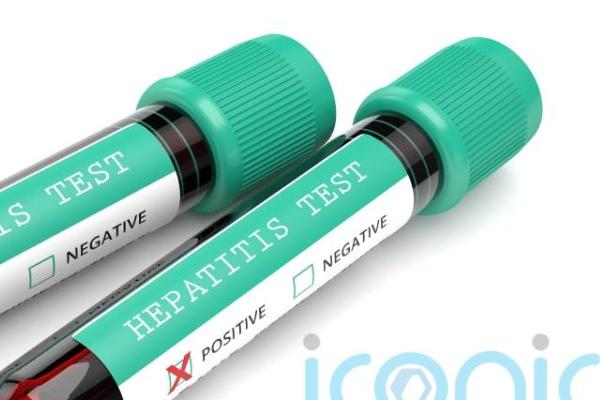The Future of Healthcare: A Comprehensive Guide to Digital Therapeutics

Strong 8k brings an ultra-HD IPTV experience to your living room and your pocket.
The Future of Healthcare: Digital Therapeutics | Healthcare 360 Magazine
Digital therapeutics (DTx) represent a groundbreaking approach to healthcare, leveraging technology to deliver therapeutic interventions directly to patients. Unlike traditional treatments, it utilize digital tools and platforms to manage, treat, and prevent diseases. This comprehensive guide explores the world of digital therapeutics, examining their benefits, applications, and future potential in transforming patient care and enhancing health outcomes.
What Are Digital Therapeutics?
DTx are evidence-based therapeutic interventions driven by high-quality software programs to prevent, manage, or treat medical conditions. These solutions are designed to be used independently or in conjunction with other treatments, offering patients personalized and accessible care.
Key Features:
Evidence-Based: DTx solutions are backed by clinical research and are designed to meet rigorous standards of efficacy and safety.
Patient-Centric: They offer personalized care, adapting to individual patient needs and conditions.
Accessible: Delivered through smartphones, tablets, or other digital platforms, making therapy available anytime and anywhere.
How it Works
Digital therapeutics function through various methods, depending on the condition being treated. Common approaches include:
Behavioral Therapy: Programs that provide cognitive-behavioral therapy (CBT) to help patients manage mental health conditions such as depression or anxiety.
Chronic Disease Management: Tools designed to help patients manage chronic diseases like diabetes by monitoring symptoms, medication adherence, and lifestyle changes.
Rehabilitation: Virtual exercises and rehabilitation programs for patients recovering from injury or surgery.
Benefits of DTx
Enhanced Accessibility
DTx offer greater accessibility to care, particularly for individuals in remote or underserved areas. By providing therapy through digital platforms, patients can receive support without the need for frequent in-person visits.
Personalized Treatment
The Future of Healthcare: Digital Therapeutics | Healthcare 360 Magazine
DTx solutions use data and algorithms to deliver personalized treatment plans. This customization helps address specific patient needs and conditions, leading to more effective management and better health outcomes.
Convenience
The convenience of accessing therapy through mobile apps or online platforms means that patients can integrate treatment into their daily lives more easily. This can improve adherence and engagement with therapeutic interventions.
Data-Driven Insights
Digital therapeutics generate valuable data on patient behavior, progress, and outcomes. This data can be used to refine treatment plans, track progress, and make informed decisions about patient care.
Cost-Effectiveness
By reducing the need for frequent in-person visits and leveraging technology to deliver therapy, DTx can lower healthcare costs for both patients and providers. They can also help prevent costly complications by managing conditions more effectively.
Applications of DTx
Mental Health
DTx have shown significant promise in the field of mental health. For instance, digital platforms offering cognitive-behavioral therapy (CBT) have been effective in treating conditions such as anxiety and depression. Apps like Headspace and Woebot provide evidence-based interventions and support for mental well-being.
Chronic Disease Management
Managing chronic conditions like diabetes or hypertension can be challenging. Digital therapeutics offer tools for monitoring and managing these conditions. Apps such as mySugr for diabetes management provide patients with real-time feedback on their blood sugar levels and offer personalized recommendations.
Addiction Recovery
DTx solutions are being developed to support individuals recovering from substance use disorders. Programs that provide behavioral therapy, tracking, and support can assist patients in their recovery journey. Sober Grid is an example of an app that offers a supportive community and resources for those in recovery.
Rehabilitation
The Future of Healthcare: Digital Therapeutics | Healthcare 360 Magazine
It also play a role in rehabilitation. Virtual rehabilitation programs offer exercises and therapies for patients recovering from surgery or injury. Fit light is an example of a digital platform providing interactive exercises to aid in physical rehabilitation.
Challenges and Considerations
While DTx hold great promise, several challenges and considerations need to be addressed:
Regulatory Approval: Ensuring that DTx meet regulatory standards for safety and efficacy is essential. Many DTx solutions are subject to regulatory scrutiny before they can be widely adopted.
Data Security: Protecting patient data and ensuring privacy is a critical concern. Digital therapeutics must comply with data protection regulations to safeguard patient information.
Technology Access: Not all patients have access to the necessary technology or internet connectivity. Ensuring equitable access to DTx is important for broader adoption.
The Future
The field of DTx is rapidly evolving, with ongoing advancements in technology and research. The future of DTx promises several exciting developments:
Integration with Other Therapies: It will increasingly be integrated with traditional treatments, providing a holistic approach to patient care.
The Future of Healthcare: Digital Therapeutics | Healthcare 360 Magazine
Artificial Intelligence: AI and machine learning will enhance the personalization and effectiveness of DTx, leading to more tailored treatment plans.
Expanded Applications: The scope of DTx will continue to expand, addressing a wider range of conditions and therapeutic needs.
Conclusion
Digital therapeutics represent a transformative approach to healthcare, offering personalized, accessible, and evidence-based interventions. As technology continues to advance, the potential for DTx to improve patient outcomes and reshape healthcare delivery is immense. By understanding and embracing the benefits and challenges of digital therapeutics, patients and healthcare providers can work together to harness the full potential of this innovative field.
Find practical solutions to common challenges through our insightful articles on Healthcare 360 Magazine
Note: IndiBlogHub features both user-submitted and editorial content. We do not verify third-party contributions. Read our Disclaimer and Privacy Policyfor details.







